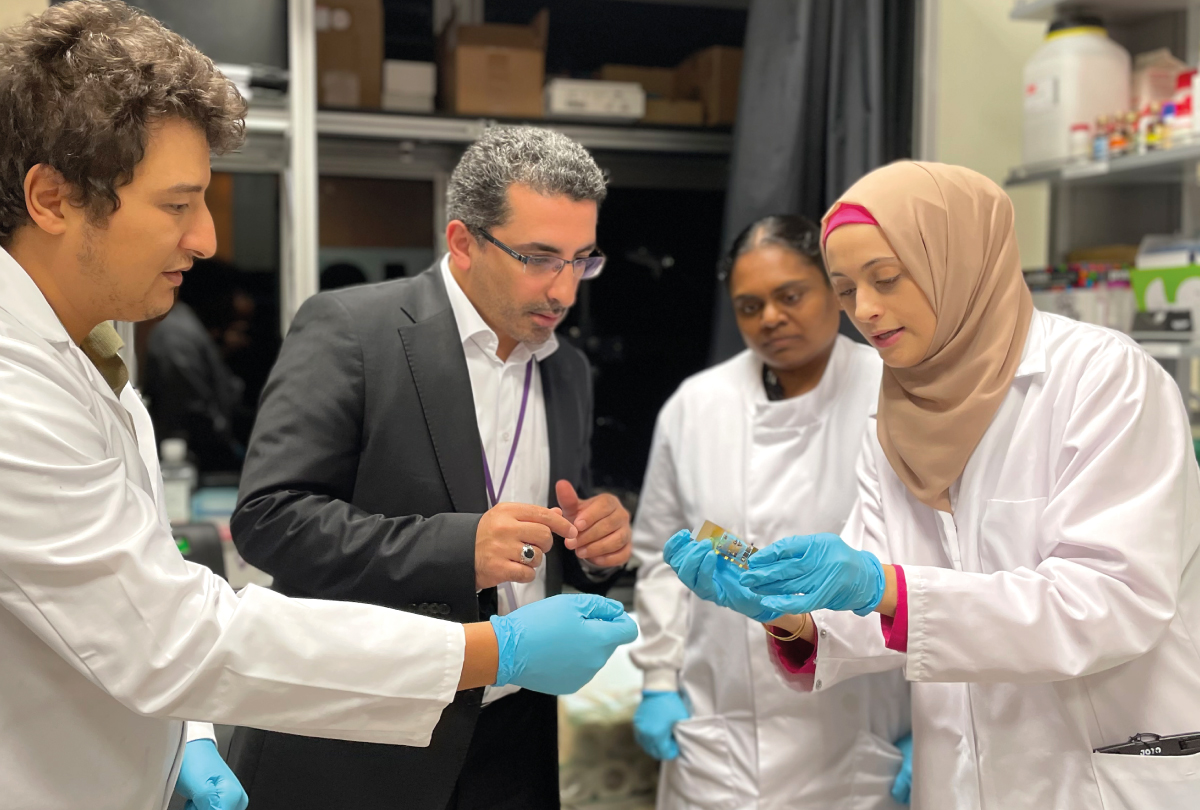
Globally, diabetes is estimated to affect 420 million adults. Studies show that the prevalence of diabetes in the UAE is estimated to affect a quarter of the local population.
Hematological (blood) disorders that occur in diabetes patients are found to put them at a higher risk for developing atherosclerotic coronary and peripheral arterial disease. Therefore, developing new technologies that offer alternative approaches to understand disease progression is of high importance for assessing risks and providing improved treatment in the future.
Al Jalila Foundation research grant recipient, Professor Mohammad Qasaimeh from New York University Abu Dhabi, aims to tackle this problem by developing biochip technology for monitoring and diagnosing diabetes through exploring the mechanical properties of red blood cells (RBCs). The new technology was tested with patients’ blood samples in collaboration with the Cleveland Clinic Abu Dhabi.
The biochip, developed with technologies used for manufacturing transistors and electronic devices such as phones and computers, utilises a tiny blood drop to assess the stretchability of red blood cells at the single cell resolution. RBCs were stretched by means of controlled electrical fields; a microscale phenomenon called electrodeformation. The experiments looked at stretching RBCs from individuals with Type 2 Diabetes (T2DM) and compared the results to those RBCs from healthy donors.
Interestingly, RBCs from T2DM samples were easily distinguished from healthy ones as they are shown to be stiffer and less stretchy in comparison to RBCs from healthy subjects. By looking at the stretchability of RBCs, the biochip was shown to rapidly identify T2DM cells with 90% accuracy, demonstrating its potential as reliable diagnostic tool for T2DM, as well as a high throughput technique for evaluating the biomechanical properties of cells obtained from clinical samples.

